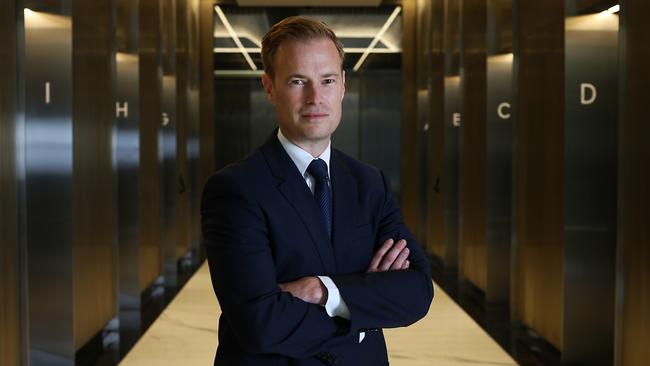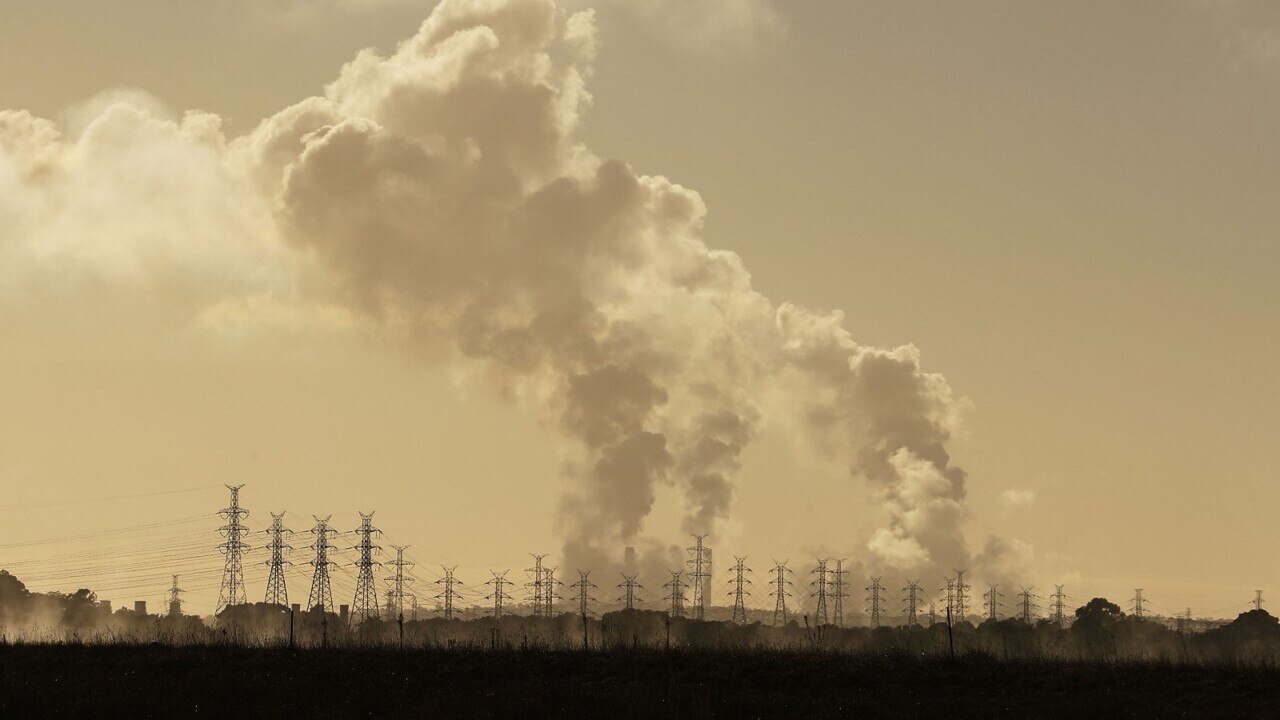Mike Cannon-Brookes and Brookfield have $20bn for AGL to fast track away from coal
Mike Cannon-Brookes and Brookfield will continue takeover push, saying they have $20bn to transition AGL away from coal.

Atlassian billionaire Mike Cannon-Brookes and his business partner Brookfield say they have set aside $20bn to transition AGL away from coal, vowing to continue to press their proposal with the energy giant’s investors despite the company immediately knocking back their $8bn bid.
Mr Cannon-Brookes, whose private business Grok Ventures is a 20 per cent stakeholder in the consortium with the Canadian asset manager, said he made “no bones” that the play was about accelerating the world toward a zero-carbon economy.

While the federal government remains concerned about the rapid fire exit of coal from the national electricity system, the tech titan blamed the fossil fuel for recent volatility as old plants including AGL’s near the end of their operating lives.
“Most of the brownouts recently have happened because of what? Coal plants being offline,” Mr Cannon-Brookes said. “Why? Because they‘re very aged assets and no-one is building any new ones. Why? Because they don’t make economic sense. They’re the ones threatening the reliability of your bills.”
AGL’s immediate rejection of the takeover bid on Monday followed Scott Morrison and Energy Minister Angus Taylor warning about a spike in electricity prices if the country’s coal power fleet – including the company’s major Bayswater and Loy Yang plants – shut earlier than expected.
AGL shares rallied 10.6 per cent to $7.92 on Monday, suggesting investors expected a higher bid.
If successful, the takeover proposal from Mr Cannon-Brookes and Brookfield would accelerate AGL’s exit from coal and prevent the company from splitting into two: an electricity generation operation and a power retailer.
The consortium – in which Brookfield has an 80 per cent interest – would invest $20bn in transitioning AGL’s power generation fleet and target net-zero emissions by 2035.
Brookfield Asia-Pacific chief executive Stewart Upson said the shift from coal would take place “in a way that prioritises customer power reliability and prices”.

“We have a defined plan to significantly rationalise AGL’s most carbon-intensive thermal assets once we have replaced its capacity through the execution of a large-scale renewable build-out, supported by an identified project pipeline,” Mr Upson said.
A higher proposal, if accepted by AGL, would place Mr Cannon-Brookes and Brookfield on an election-eve collision course with the Morrison government.
Mr Taylor says the bid to accelerate closures “only compounds the risk” of power shortages.
“I’ve been calling this out since the day I became Energy Minister,” Mr Taylor will say in a speech on Tuesday.
“That hasn’t always been a popular position – there are plenty of others who are happy to hand wave, hiding behind technicalities to proclaim ‘it will all be OK’. But we’ve seen this movie before. If a major generator is closed down, there’s a gap in supply that must be replaced. And if there is no replacement, it’s customers who wear the pain.
“Let’s be clear – these energy companies provide an essential service. Customers must come first. And to keep energy companies and investors honest, we will do what is needed to keep prices low and the lights on.”
Mr Cannon-Brookes said he made “no bones that Grok Ventures and the family office and my wife and I are putting those resources towards trying to be catalytic investing in ways that will drive Australia and the economy forward and hopefully the world’s decarbonisation process forward”.
“Environmental concerns actually affect every sector of the economy, whether that‘s manufacturing or resources,” he said.

“I think investors in general are not investing for impact, but looking at the impact of ESG (environmental, social and governance) concerns and everything else, because they’re worried about how these transitions play out with all their investments. That’s just part of them managing risk.”
The consortium on Monday proposed a scheme to replace 7 gigawatts of capacity through “a build-out” of at least 8GW of clean energy and storage, noting the consortium’s access to capital, renewables development capability and deep expertise in owning and operating high-quality infrastructure. It wants AGL to be net-zero emissions by 2035, some 12 years earlier than the company’s current plans.
AGL rejected the bid as undervaluing the company given the modest 5 per cent premium to Friday’s closing price although the consortium hit back saying its $7.50-a-share bid was a 20 per cent premium to the three-month average trading price.
Mr Cannon-Brookes said a clean energy revolution was already underway. “People are asking energy providers for that already,” he said. They want that energy to be as cheap as possible and continue to be cheaper. So we’d have to be delivering far cheaper energy in 10 years time. And obviously far cleaner energy in 10 years time.”
The bid was structured as a cash proposal with an option for shareholders to take shares in the Brookfield consortium’s firm used for the deal, up to a 20 per cent ownership cap.
Shareholders in the 180-year-old electricity company had been due to vote in June on a plan to split it into two companies: a green retailer named AGL Australia seeking to be fully carbon-neutral by 2040, and a coal-dominated generator, Accel Energy, targeting net-zero emissions by 2047.
The power giant’s board said it remained committed to progressing the proposed demerger and considered the split would deliver better value for shareholders.
“In the absence of a proposal that provides appropriate value to AGL Energy shareholders on a control basis, the board continues to believe the demerger maximises value for shareholders and is in the best interests of shareholders,” AGL said in a statement.
More Coverage







To join the conversation, please log in. Don't have an account? Register
Join the conversation, you are commenting as Logout